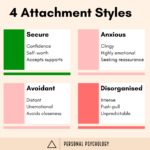Self-validation is the practice of recognising and believing in your own thoughts, feelings, and experiences without needing confirmation from others to make them feel real or important. It’s an internal compass that says, “My emotions matter. My thoughts are valid. My experiences count, regardless of what anyone else thinks.”
This concept may sound simple, but it fundamentally shapes how people navigate life. Many of us spend years seeking validation from others: a partner’s approval, a parent’s praise, a boss’s recognition, or social media likes.
While external validation feels good, relying too much on it creates a fragile foundation. Not only do the good feelings not tend to last, but when the external sources disappear, the whole structure collapses.
Self-validation is different. It’s about developing an internal reference point, a voice within that acknowledges what you are experiencing and tells you that you are worthy of attention and care.
Table of Contents
Self-validation in a fast-paced world
The digital age has made self-validation more unreachable than ever. People curate their lives for public consumption, watching others do the same, and unconsciously absorb the message that validation must come from outside.
If you rely on external validation, you might feel real excitement about an accomplishment, but that excitement doesn’t feel “real” until someone else comments, likes, or compliments it.
Difficult emotions, like sadness, anger, loneliness, or guilt, might feel embarrassing or invalid if others dismiss them or minimise them.
This external dependence creates several problems. First, it leaves you vulnerable to criticism and rejection. If someone’s sense of self-worth depends on others’ opinions, any disagreement or criticism threatens their emotional stability. Second, it leads to decision-making based on what others want rather than what actually matters to you. Third, it depletes emotional energy, constantly needing reassurance that never fully satisfies.
Self-validation helps with these problems head-on by shifting the locus of control inward.
How self-validation develops
Self-validation doesn’t emerge spontaneously. It’s typically learned in childhood through consistent, attuned responses from parents. When a child expresses a feeling and a parent responds with understanding, “I see you’re frustrated”, without trying to fix it or dismiss it, the child learns that their internal experience is real and worthy of acknowledgment. Over time, the child internalises this response and begins validating themselves.
However, not everyone receives this kind of parenting. Some grow up in environments where emotions were dismissed (“You’re being too sensitive”), compared to others (“Your brother doesn’t cry about that”), or used against them (“If you cry, I’ll give you something to cry about”). In these contexts, people learn to question their own experiences and seek external confirmation instead.
The good news is that self-validation can be learned at any age. It’s a skill, like riding a bike, not a fixed trait, like your height. However, like any skill, like playing an instrument, learning a language, or building physical fitness, it requires practice and patience.
Self-validation – a four-step process
Research in Dialectical Behaviour Therapy (DBT) and related therapeutic approaches has identified specific, practical steps for building self-validation. These steps aren’t theoretical abstractions; they’re evidence-based practices that have been tested with thousands of individuals struggling with emotional regulation.
Step 1: Be present and acknowledge what you’re experiencing
How can you validate your thoughts and feelings if you aren’t aware of them? The first step is paying attention to yourself non-judgmentally. By directing awareness towards emotions, thoughts, actions, and bodily sensations, a person signals to themselves that they are deserving of their own attention and care.
This practice of being present, often called mindfulness, is the foundation of self-validation. Research shows that dispositional mindfulness is associated with better emotional recovery and reduced negative emotional responses. When mindfulness improves present-moment awareness, it helps individuals notice pleasant and unpleasant aspects of everyday experience, providing more opportunities to understand and validate what’s happening internally.
If someone is hesitating to voice an opinion on a matter, they might take a step back and try to identify the feeling, maybe it’s anxiety? Acknowledging “I’m feeling anxious right now” is the first step. Instead of getting lost in a self-deprecating train of thought, simply name what’s there: “I am feeling sad.” “I’m embarrassed.” “I’m proud of what I did.”
This simple act of naming validates the experience as real. Studies demonstrate that emotional awareness, our ability to recognise and label our emotional state, is associated with improved psychological well-being and better emotion regulation.
Step 2: Allow and accept those feelings
The second step involves accepting emotions without judgment. This doesn’t mean liking the emotion or wanting it to continue. It means recognising that the emotion exists and treating it as valid and normal.
This is directly related to avoiding the trap of judging yourself for feeling a certain way. If it’s nerves someone is feeling, they can remind themselves that it’s okay to feel nervous and that everyone experiences nerves.
Research on Acceptance and Commitment Therapy (ACT) demonstrates that psychological flexibility, our ability to experience difficult emotions without being controlled by them or engaging in avoidance, predicts better mental health outcomes.
Without acceptance, people often layer secondary emotions on top of primary ones. For instance, someone might feel sad (primary emotion), then feel angry at themselves for being sad, and then feel anxious about being angry, a cascade of emotional reactivity that becomes overwhelming.
Self-validation interrupts this cascade by accepting the initial emotion: “I’m feeling sad. That’s what’s happening right now.”
Studies show that self-compassion, accepting your experiences with kindness rather than harsh self-judgment, significantly correlates with psychological flexibility, mindful acceptance, and non-judgment. People with higher self-compassion show lower levels of depression and anxiety, and higher levels of life satisfaction. Accepting your emotions is overall good for you!
Step 3: See your reaction in context
All feelings are valid, but the third step involves putting them into context with past or present situations. We want to understand our history and the causes of our emotions. This detective work helps you to dive beneath the surface and decipher what your body and mind are communicating about your needs and emotions.
Context matters! If someone spent hours preparing for a job interview only to miss out on the job, they might acknowledge: “I’m feeling helpless and a little angry. I spent a lot of time preparing for that interview, so it’s understandable I’m feeling disappointed.” This contextualising recognises how past experiences shape current responses and enhances acceptance of reality.
Research on emotion regulation emphasises that understanding the full context, including the situation, what draws attention, how it’s understood, and what responses follow, helps you to regulate your emotions more effectively.
When you understand that your emotional reactions make sense given your biology, history, and current circumstances, you will feel less shame and self-criticism about them.
This step also normalises the response. Most human experiences are common. Anxiety about uncertainty is normal. Sadness about loss is normal. Frustration with injustice is normal. Recognising that others feel these things too helps remove the shame that often accompanies difficult emotions and validates one’s experience as part of the broader human condition.
Step 4: Everything is okay, it’s part of being human
The final step is extending compassion to yourself and cutting yourself some slack. You are human, after all, and everyone has reacted to particular situations in ways they couldn’t always control.
This step represents the core principle of self-compassion: treating yourself with kindness, understanding, and forgiveness rather than harsh criticism.
Research consistently demonstrates that self-compassion acts as a protective factor against distressing experiences and is negatively associated with self-criticism, depression, and anxiety.
The next time you find yourself worrying what others might think of your viewpoints or your reactions, you can remember that no two people are the same. The goal is to make your internal headspace a pleasant place to be. As one recent study found, practising self-compassion through structured interventions significantly increases self-compassion scores while reducing stress, anxiety, and depressive feelings.
Self-validation is Not self-deception
An important distinction needs clarification: self-validation is not the same as self-deception or toxic positivity. You can validate your experience while still being honest about reality.
If someone fails an exam, self-validation doesn’t mean thinking, “That was great!” It means thinking, “I didn’t pass. I’m disappointed. I worked hard, and the results still weren’t what I wanted. Of course, this hurts. I’m also capable of learning and trying again.” The person acknowledges the disappointment (validation) while maintaining honesty about the situation and agency in response.
Similarly, self-validation doesn’t mean never accepting constructive criticism. When feedback is delivered respectfully and contains useful information, a person can validate their initial emotional reaction (“I feel defensive right now”) while also genuinely considering the feedback’s merit (“but they might have a point”).
The relationship between self-validation and mental health
Clinical research consistently shows connections between self-validation and psychological well-being. People who validate their own experiences tend to have better emotional regulation, lower anxiety and depression rates, and more stable self-esteem. They’re also better at setting boundaries, making decisions aligned with their values, and maintaining healthy relationships, because they’re not desperately seeking validation from every interaction.
The evidence is substantial. A randomised trial of an ACT-based workshop targeting self-compassion found that participants showed significant improvements in self-compassion, general psychological distress, and anxiety compared to controls, with psychological flexibility serving as a significant mediator of these changes. Another study found that mindfulness, self-compassion, and unconditional self-acceptance predicted better regulation of psychological needs and mediated the relationship between dysfunctional emotional schemas and psychological well-being.
Conversely, chronic validation-seeking often accompanies anxiety disorders, depression, and attachment-related difficulties. The constant internal question “Am I okay?” combined with dependence on external answers creates emotional instability. Research also shows that without self-acceptance, beneficial interventions like mindfulness become less effective at reducing stress, and brain regions that help control emotions and stress actually have less grey matter to work with.
This doesn’t mean that people who can recognise and validate their emotions never struggle with self-doubt or seek feedback. The difference is in the foundation. Their self-worth isn’t shaken by disagreement because it’s not primarily dependent on others’ opinions. External feedback becomes useful information to consider rather than the daily need for reassurance of their worth.
Self-validation, rather than mutual reassurance, in relationships
An interesting dynamic emerges when both people in a relationship develop self-validation skills. Instead of partners constantly reassuring each other or seeking reassurance, they can genuinely support each other while maintaining individual clarity. Conflicts become easier to navigate because disagreement doesn’t threaten either person’s sense of self. Each person’s perspective is taken seriously because each person takes their own perspective seriously.
Conversely, relationships where both people are validation-dependent tend to become unstable. Minor criticisms feel catastrophic. Small disagreements escalate to threats because they’re experienced as rejections of the self, not just differences of opinion.
When self-validation can be challenging
Some situations make self-validation hard. During acute trauma or crisis, the nervous system prioritises survival over reflection. During severe depression or anxiety, the internal dialogue often becomes self-critical rather than self-supportive. In these situations, external support becomes essential. Not as a replacement for self-validation but as a temporary scaffold while someone recovers capacity for internal validation.
This is where psychologists become invaluable. A good therapist helps you to organise and validate your experiences, modelling what self-validation looks like and helping you gradually internalise these skills.
Dialectical Behaviour Therapy, in particular, operates on the principle that validation is fundamental to eliciting therapeutic change, while invalidation escalates negative emotional intensity and compromises therapeutic relationships. Over time, therapy helps you develop your own internal validating voice; the voice of the therapist becomes internalised.
The long-term impact
Over months (and years) of practice, self-validation becomes less effortful. What initially required effortful attention and work, stopping to name an emotion, accepting them in the context, eventually becomes automatic. The internal dialogue shifts from “Am I okay?” to “This is what’s happening, and I can handle it.”
Longitudinal research supports this trajectory. Studies tracking individuals over multiple time points found that self-compassion and psychological flexibility serve as consistent and stable coping strategies that reduce self-criticism and enhance mental well-being over time. The benefits are increased self-awareness, improved self-confidence, better emotional regulation, and greater resilience.
This doesn’t mean life becomes easy or problem-free. Rather, it means difficulties are faced with internal steadiness rather than internal panic. It means making choices based on what matters rather than what others might think. It means tolerating disagreement without crumbling. It means experiencing full emotional range, from joy to sadness, from disappointment to pride, from self-doubt to confidence, without any of it threatening your sense of self.
Self-validation is about becoming your own trustworthy companion through life. It’s about developing an internal anchor strong enough to hold steady while everything else shifts around it. Research across multiple therapeutic modalities, from DBT to ACT to self-compassion interventions, confirms that this internal anchor can be built through deliberate practice of being present, allowing emotions, understanding them in context, and treating yourself with compassion. That, ultimately, is the foundation for resilience, authenticity, and genuine well-being.
Please note that this blog post by Personal Psychology, psychologists in North Sydney, and is not intended to provide professional advice. If you or someone you know is experiencing mental health difficulties, it is important to seek help from a qualified healthcare professional.





